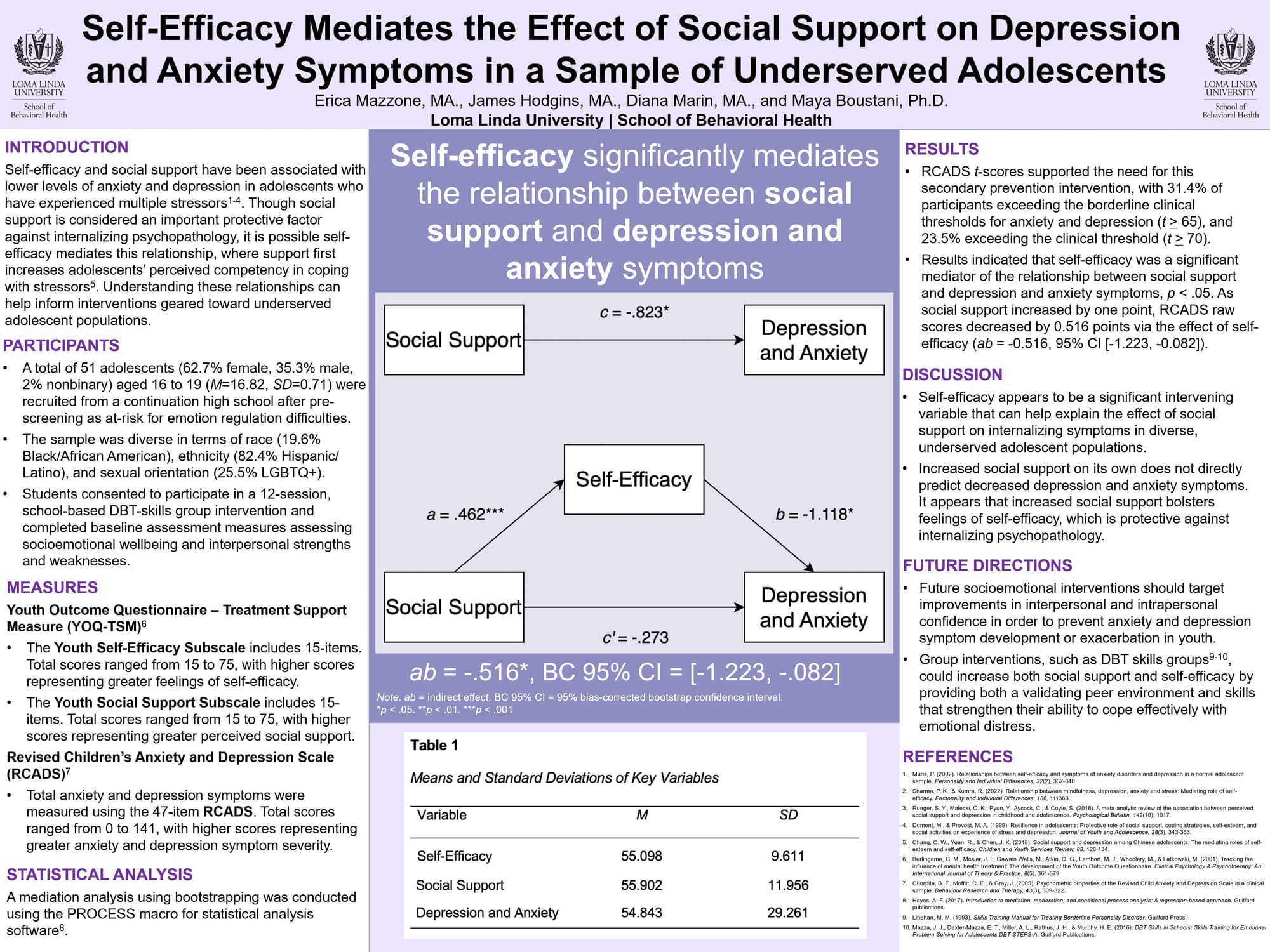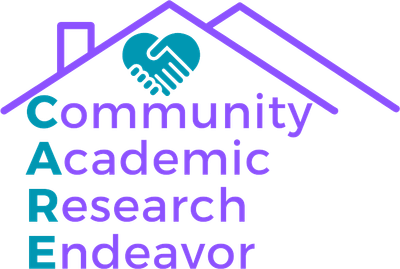Self-Efficacy Mediates the Effect of Social Support on Depression and Anxiety Symptoms in a Sample of Underserved Adolescents

Self-efficacy and social support have been associated with lower levels of anxiety and depression in adolescents who have experienced multiple stressors1. Though social support is considered an important protective factor against internalizing psychopathology, it is possible self-efficacy mediates this relationship, where support first increases adolescents’ perceived competency in coping with stressors5. Understanding these relationships can help inform interventions geared toward underserved adolescent populations. A total of 51 adolescents (62.7% female, 35.3% male, 2% nonbinary) aged 16 to 19 (M=16.82, SD=0.71) were recruited from a continuation high school after pre-screening as at-risk for emotion regulation difficulties. The sample was diverse in terms of race (19.6% Black/African American), ethnicity (82.4% Hispanic/ Latino), and sexual orientation (25.5% LGBTQ+). Students consented to participate in a 12-session, school-based DBT-skills group intervention and completed baseline assessment measures assessing socioemotional wellbeing and interpersonal strengths and weaknesses. The Youth Self-Efficacy Subscale includes 15-items. Total scores ranged from 15 to 75, with higher scores representing greater feelings of self-efficacy. The Youth Social Support Subscale includes 15-items. Total scores ranged from 15 to 75, with higher scores representing greater perceived social support. Total anxiety and depression symptoms were measured using the 47-item RCADS. Total scores ranged from 0 to 141, with higher scores representing greater anxiety and depression symptom severity. A mediation analysis using bootstrapping was conducted using the PROCESS macro for statistical analysis software8. RCADS t-scores supported the need for this secondary prevention intervention, with 31.4% of participants exceeding the borderline clinical thresholds for anxiety and depression (t > 65), and 23.5% exceeding the clinical threshold (t > 70). Results indicated that self-efficacy was a significant mediator of the relationship between social support and depression and anxiety symptoms, p < .05. As social support increased by one point, RCADS raw scores decreased by 0.516 points via the effect of self-efficacy (ab = -0.516, 95% CI [-1.223, -0.082]). Self-efficacy appears to be a significant intervening variable that can help explain the effect of social support on internalizing symptoms in diverse, underserved adolescent populations. Increased social support on its own does not directly predict decreased depression and anxiety symptoms. It appears that increased social support bolsters feelings of self-efficacy, which is protective against internalizing psychopathology. Future socioemotional interventions should target improvements in interpersonal and intrapersonal confidence in order to prevent anxiety and depression symptom development or exacerbation in youth. Group interventions, such as DBT skills groups, could increase both social support and self-efficacy by providing both a validating peer environment and skills that strengthen their ability to cope effectively with emotional distress.



